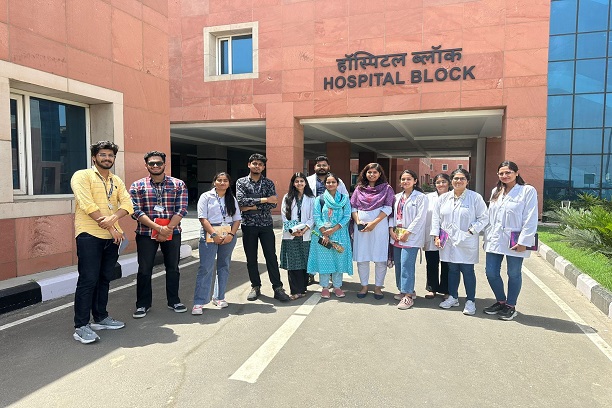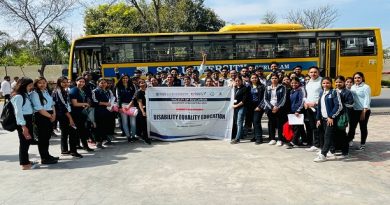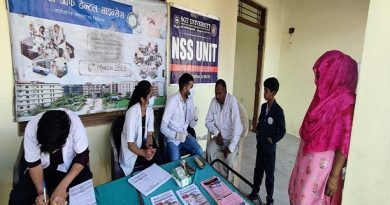The Department of Clinical Psychology, Faculty of Behavioral Sciences organized a field visit to NCI -AIIMS Jhajjar
The Department of Clinical Psychology, Faculty of Behavioral Sciences organized a
field visit to NCI -AIIMS Jhajjar on 19th April,2023. 11 trainee from Professional
Diploma in Clinical Psychology and Bachelors of Arts Psychology and 2 assistant
professors went to visit NCI- AIIMS. Here trainees were exposed to PCU (Progressive
Care Unit). This is a specialized ward which keeps the patient with terminal stage of
various types of cancers. As the treatment is not available in the terminal stages so
supportive interventions were being given to the patients. In this ward cancer patients
get symptomatic management with palliative care. The proceedings started with Dr.
Shallu Joon and Ms. Megha Sharma (Assistant Professor in Department of Clinical
Psychology) by explaining trainees about cancer patients , most commonly faced
issues and regarding psycho educating the patients. Then the trainees were allotted to
different patients by Dr. Prashant, an Assistant professor in PCU. Trainees started
interacting with different patients and their family members who were there with
them. Trainees took brief history about the illness , how it proceeded and how it was
diagnosed. They also conducted, basic assessments . In the end they psycho educated
regarding the associated stressor with the illness. From the interactions
trainees came to know that there were variety of cancer patients
admitted including adenocarcinoma, oesophagus cancer, oral cancer, liver
SOL, cervical cancer to name a few. These patients were either in their stage 4 or at
terminal stages where it cannot be cured and hence placed in palliative care facility for
symptomatic management. Trainees were asked to take their brief history and elicit
symptoms of any psychological stressors or symptomatology. When trainees approach
to them, patients were receptive towards trainees.
They observe the patients were expressing various emotions. Like some of them were
not accepting the severity of the current situation while some of them were very
resilient. Many patients showed associated symptoms of depression and anxiety.
Trainees tried to elicit their current life stressors and informant’s stress. Students
briefly psycho- educated them regarding bereavement to the caregiver, taught them
some breathing exercises for anxiety symptoms, briefly supportive therapy was done.
Most of the patients were open to share and express their emotions, while some of
them were having memory impairment which was quite evident.
Later, the faculty doctor at that ward explained about symptomatology and
managements of cancer patients in palliative care. Trainees also interacted with other
resident doctors and nursing staff.
Overall, it was extremely learning experience and exposure for the trainees. Trainees
reflected that this field visit added to their multidimensional exposure in the learning
programme.




